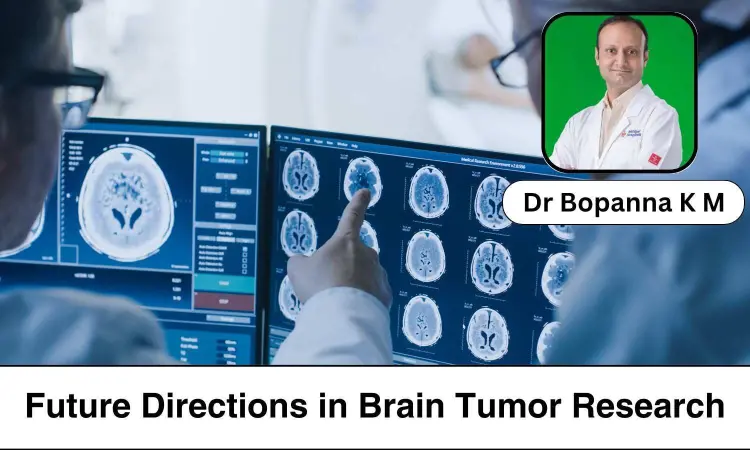- Home
- Medical news & Guidelines
- Anesthesiology
- Cardiology and CTVS
- Critical Care
- Dentistry
- Dermatology
- Diabetes and Endocrinology
- ENT
- Gastroenterology
- Medicine
- Nephrology
- Neurology
- Obstretics-Gynaecology
- Oncology
- Ophthalmology
- Orthopaedics
- Pediatrics-Neonatology
- Psychiatry
- Pulmonology
- Radiology
- Surgery
- Urology
- Laboratory Medicine
- Diet
- Nursing
- Paramedical
- Physiotherapy
- Health news
- Fact Check
- Bone Health Fact Check
- Brain Health Fact Check
- Cancer Related Fact Check
- Child Care Fact Check
- Dental and oral health fact check
- Diabetes and metabolic health fact check
- Diet and Nutrition Fact Check
- Eye and ENT Care Fact Check
- Fitness fact check
- Gut health fact check
- Heart health fact check
- Kidney health fact check
- Medical education fact check
- Men's health fact check
- Respiratory fact check
- Skin and hair care fact check
- Vaccine and Immunization fact check
- Women's health fact check
- AYUSH
- State News
- Andaman and Nicobar Islands
- Andhra Pradesh
- Arunachal Pradesh
- Assam
- Bihar
- Chandigarh
- Chattisgarh
- Dadra and Nagar Haveli
- Daman and Diu
- Delhi
- Goa
- Gujarat
- Haryana
- Himachal Pradesh
- Jammu & Kashmir
- Jharkhand
- Karnataka
- Kerala
- Ladakh
- Lakshadweep
- Madhya Pradesh
- Maharashtra
- Manipur
- Meghalaya
- Mizoram
- Nagaland
- Odisha
- Puducherry
- Punjab
- Rajasthan
- Sikkim
- Tamil Nadu
- Telangana
- Tripura
- Uttar Pradesh
- Uttrakhand
- West Bengal
- Medical Education
- Industry
Future Directions in Brain Tumor Research and Treatment - Dr Bopanna K M

Heterogeneity is probably the most defining factor in addressing the complex topic of brain tumours. Malignant brain tumours are diverse in their morphology and cellular pathways while being shielded by the blood-brain barrier, which renders effective systemic therapy a Herculean task with a grim prognosis.
At present, most patients receive a generalized protocol of resective surgery followed by chemotherapy and radiation. The role of a tailored approach using precision medicine to treat brain tumours is the need of the hour to improve the outcomes of this devastating disease.
It is estimated that approximately 65,000 non-malignant and 25,000 malignant brain tumours are diagnosed annually in the US, and this burden is likely increasing in keeping with the overall incidence of tumours worldwide.
Future Directions: Brain Tumour Diagnosis and Treatment
The Neurooncological approach to a brain tumour requires strategizing treatment into stages, acknowledging that each stage brings its own unique set of multidisciplinary challenges with the common goals of tumour control and neural preservation to optimize the patient’s functional outcome.
The following is a brief insight into the promising current research in treating brain tumours.
At the diagnosis stage, AI with deep learning techniques in the field of Radiomics is increasingly being adapted to elicit zones of tumour extension within the brain, which aids in surgical and radiation planning.
During the initial stage of treatment, attaining a maximal safe resection, dexterous microsurgical removal of tumour from within an intricate mesh of critical brain structures benefits from research in Radiomics.
Radiomic data on tumour distribution and eloquent neural networks in tandem with intraoperative electrophysiological monitoring during resection optimizes the extent of tumour resection.
Fluorescence-guided resections with Immunofluorescence imaging using targeted antibodies against glioma cell lines offer improved intraoperative visualization of tumour tissue, thus extending the margins of glioma resection.
These resections are further aided by the advances in Exoscopic and Endoscopic fluorescence imaging techniques. Intraoperative treatment of the post-resection cavity includes the use of Radioactive gamma-emitting tiles layered in the brain along the resection margins to further sanitize the peripheral region of infiltrating tumour cells.
At the tissue analytic stage, establishing a comprehensive gene-based diagnosis is a work in progress that will become the standard of care for precision medicine in the treatment of gliomas. There are several established and dynamic glioma genetic atlas compilations to aid in this endeavour.
Based upon genetic configuration targeted therapy using drugs such as the MEK1/2 inhibitor Selumetinib in BRAF duplicated low-grade gliomas and mTOR pathway inhibitor.
Evorolimus to treat Subependymal giant cell astrocytoma have proved to be game-changing in their efficacy and limiting neurotoxicity from traditional chemotherapy. A limitation of this modality at present is the need for prolonged administration of targeted therapy.
Mutant IDH enzyme inhibitor Vorasidenib has shown promise in successfully targeting the commonly referred to IDH pathway in gliomas, establishing tumour control in glioma clinical trials.
Chimeric Antigen Receptor T (CAR-T) cell therapy utilizes the patient's own genetically reprogrammed T cells to specifically inhibit tumour growth and has been found to improve progression-free survival when administered in clinical trials.
Drug-containing nanoparticles utilize the presence of low-density lipoprotein receptors on the feeding blood vessels of gliomas, further enhancing cytotoxic drug delivery to specific tumour targets.
Focused Ultrasonic disruption of the blood-brain barrier is a modality that uses targeted Ultrasonic waves to disrupt the blood-brain barrier and thereby improve drug penetration.
Tumour Treating Fields is a weak, prolonged electrical current generated via a helmet that has been used with some success in combination with standard forms of glioma treatment. Immunotherapy is an ongoing modality that is witnessing continual refinement using glioma vaccines, checkpoint inhibitors, and oncolytic viruses to achieve tumour control.
Although curative treatment is evasive at present, the success of new-age interventions in a few brain and systemic tumours using a precision medicine approach holds hope to guide future research and definitively help patients recover well from this devastating disease.
Dr Bopanna K M (MBBS, DNB (Neurosurgery), Fellowship Paediatric Neurosurgery) is the HOD & Consultant (Neurosurgery) at Manipal Hospital, Old Airport Road, Bengaluru. He has performed more than 6,000 neurosurgeries in his more than 20 years of experience, which includes several tough instances involving mind tumours and aneurysms. His area of expertise include Brain Tumour, Paediatric Neurosurgery, Cerebro Vascular Microsurgery, Epilepsy Surgery, and more.


